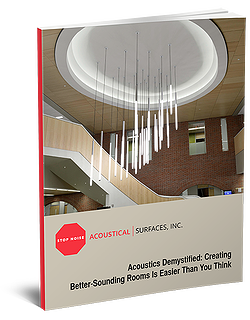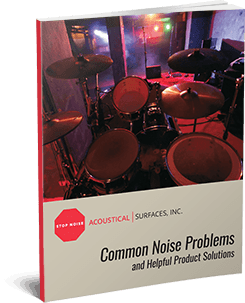Do Soundproof Curtains Really Work?
In a world filled with noise, finding moments of peace and tranquility can be a challenge. Whether it’s the bustling city streets, noisy neighbors, or constant hum of appliances, unwanted sounds can disrupt our daily lives and hinder our well-being. This is where soundproof curtains come to the rescue. These innovative window treatments offer more than just style and privacy—they have the power to transform your living or working space into a sanctuary of calm and quiet.
In this article, we’ll explore the question, “do soundproof curtains work?”, and discuss how they can significantly improve your quality of life.
What are soundproof curtains?
Soundproof curtains, also known as noise-reducing curtains, are specialized window coverings designed to minimize the transmission of sound from outside to inside or vice versa. They’re typically made using heavy and dense materials, such as multiple layers of thick fabric, combined with insulating materials and sometimes an additional layer of sound-absorbing foam.
How do soundproof curtains work?
Soundproof curtains employ a clever combination of absorption, reflection, and mass to effectively reduce unwanted noise. First, curtains that block sound are crafted with dense and fibrous materials used for their exceptional sound-absorbing properties. When sound waves encounter these materials, they undergo a remarkable transformation, with the curtains converting the sound energy into heat energy, thereby diminishing the overall sound level. As sound waves make their way through the curtain, the fibrous materials trap and disperse the energy, impeding its progress and creating a quieter environment.
Moreover, soundproof curtains possess an additional talent: reflection. In addition to absorption, these curtains can reflect a portion of the sound waves toward their origin. The multiple layers of thick and dense fabric act as resilient shields, expertly bouncing the sound waves away from the room. By redirecting the sound, soundproof curtains thwart the infiltration of unwanted noise and help maintain a serene space.
But it’s the element of mass that truly solidifies the soundproofing prowess of these curtains. Since they’re made with heavyweight materials, they add substantial mass to the window area. This additional mass plays a crucial role in soundproofing by obstructing and dampening sound waves. The sheer weight and thickness of the curtains restrict the ability of sound to pass through, which further reduces its impact. Thus, thicker and heavier curtains prove to be particularly effective in creating a soundproof barrier.
This all sounds great, but do soundproof curtains really work?
So we know the answer to the question, “how do soundproof curtains work to reduce noise?” But the more intriguing, and arguably critical, question is: how effective are soundproof curtains? The effectiveness of soundproof curtains in reducing noise levels depends primarily on the curtain’s thickness, density, and material. Let’s explore how each of these factors plays a role in determining the success of your noise-reducing curtains.
Thicker curtains generally provide better noise reduction because they offer a larger barrier for sound waves to penetrate. The additional layers of material help to impede the transmission of sound, resulting in a quieter space. Density is another crucial factor. The denser the fabric, the more effectively it can dissipate sound energy by converting it into heat.
The frequency of the sound waves plays a role in determining the effectiveness of soundproof curtains. Different materials and curtain designs perform differently at various frequencies. Some curtains may be more effective at reducing higher-frequency sounds, while others excel at attenuating low-frequency noises. Understanding the specific noise sources and their frequency content can help you select the most suitable soundproof curtains for your needs.
How much noise can soundproof curtains block?
Do soundproof curtains work to block virtually every incoming sound? Well, not exactly. But they work very well for the noises they do absorb or block. On average, soundproof curtains can block anywhere from 20% to 50% of the incoming noise. That said, it’s crucial to note that these percentages are approximate and can vary depending on the specific circumstances. Thicker and heavier curtains with higher density and multiple layers tend to provide better noise reduction compared to lighter or thinner curtains.
Now, it’s worth mentioning that soundproof curtains are more effective at blocking high-frequency sounds, such as traffic noise or higher-pitched voices, as opposed to low-frequency sounds like heavy machinery or bass-heavy music. This is because low-frequency sounds require more specialized soundproofing techniques and materials. Thus, when we say these innovative curtains can effectively block around 20%-50% of incoming noise, we’re mainly talking about high-frequency sounds.
Do soundproof curtains work in large spaces?
Yes, in larger spaces, soundproof drapes may still help in reducing echoes and reverberations by absorbing and diffusing some of the sound waves. They can also act as a barrier to external noise sources. However, achieving significant noise reduction in a large space may require additional soundproofing measures, like acoustic panels, sound-absorbing materials on walls and ceilings, or even structural modifications.
Benefits of soundproof curtains
You have more privacy
Noise-reducing curtains provide an added layer of privacy by reducing the transmission of sound. They prevent conversations and other sounds from being easily heard outside the room. This, in turn, ensures a greater sense of confidentiality and seclusion.
You may sleep better
We know the answer to the question, “do soundproof curtains work?”, is yes—but did you know these cutting-edge drapes can also help you wake up feeling more energized and refreshed? By minimizing external noise disturbances, soundproof curtains can enhance sleep quality. This is because they create a more serene and uninterrupted sleeping environment, which can help you achieve a deeper and more restful sleep.
You have improved energy efficiency
Many soundproof curtains offer thermal insulation properties, helping to regulate room temperature. By reducing heat transfer through windows, they contribute to energy efficiency and can result in lower heating or cooling costs on your energy bill—a win-win! And this is especially true if you’re using industrial soundproof curtains. These heavy-duty curtains can better withstand exposure to heat and block light to reduce heat transmission from outside.
Disadvantages of soundproof curtains
You could lose some natural light
While it’s wonderful that soundproof curtains do work and are pretty dang good at their job, they can, unfortunately, leave your room a little darker. The dense materials and multiple layers used in these curtains can impede the passage of sunlight, leading to a darker space. As a result, you may find yourself relying more on artificial lighting during the daytime to compensate for the reduced natural light.
To mitigate the darkness caused by soundproof curtains, you can consider a few strategies. First, select soundproof curtains that strike a balance between noise reduction and light transmission. Look for options that provide adequate soundproofing without completely blocking out natural light. Opting for curtains with lighter colors or translucent materials can also help maintain a brighter ambiance by allowing some light to pass through.
You could experience funky room acoustics
Let’s explore the question, “do soundproof curtains work when it comes to blocking internal noise?”
As noise-canceling curtains excel at reducing external sounds, it’s important to note that their primary function is to block or absorb incoming sounds from outside sources. So they may not address internal room acoustics, such as echoes, reverberations, or unwanted reflections of sound within the space, as effectively.
So if you’re aiming for a well-balanced acoustic environment, especially in areas where clear and intelligible speech or optimal audio quality is important, additional measures may be necessary. Acoustic panels, which are specifically designed to absorb sound reflections, can be strategically placed on walls, ceilings, or other surfaces to minimize echoes and reverberations. These panels are designed with sound-absorbing materials and configurations that help dissipate and absorb sound energy, resulting in a more controlled and balanced acoustic environment.
Closing the drapes
As we come to a close on our discussion of, “do soundproof curtains work?”, we want to remind you that whether you’re seeking a good night’s sleep, a productive work environment, or simply a space to relax and unwind, soundproof curtains can make a remarkable difference. Because of their ability to reduce noise levels, increase privacy, and boost energy efficiency, these curtains provide benefits that enhance both your physical and mental well-being.
So why endure the constant disruptions when you can create a tranquil haven with soundproof curtains? Invest in soundproof curtains today and experience the transformative effects of a quieter, more peaceful life.



